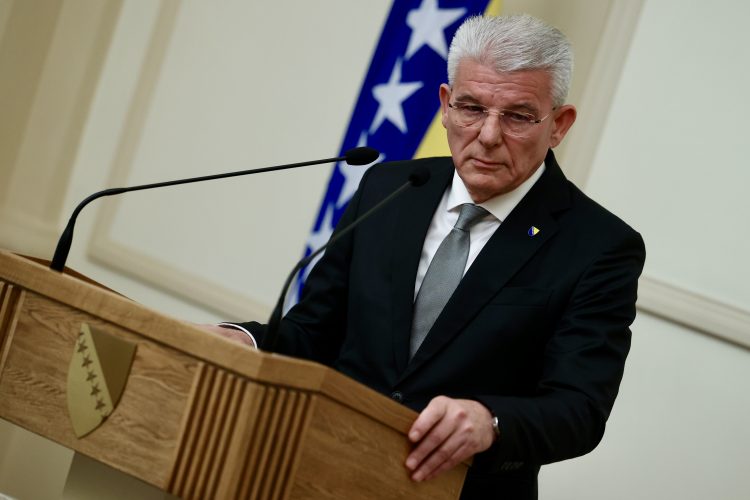
EU membership of the Western Balkans should not be seen as an administrative or technical issue but as something of the geopolitical and geostrategic importance, Chairman of Bosnia's three-member Presidency Sefik Dzaferovic told Dutch media.
“Political and economic stability and security in the Western Balkans also mean greater stability and security in the EU. Offering us candidate status would be a clear signal to the pro-Russian forces in Bosnia and Herzegovina that their politics has no chance, and a clear motivation for all of us in the country to work for our common future in the EU,” Dzaferovic told the Amsterdam-based Trouw daily.
The daily noted that Dzaferovic's Serb colleague in the Presidency “sits directly opposite him in the same corridor of the building, but their political views are miles apart.”
Dodik believes that the Bosnian unitary state does not function and is therefore openly threatening the secession of Republika Srpska, the predominantly Serb-inhabited and administered region within the country, according to the article.
The article also recalled that Dodik's party has been blocking the state institutions for months and has initiated procedures to withdraw from, among other things, the army, tax administration and the judiciary.
Also, since last year, Dodik no longer recognises the authority of the High Representative, who oversees the implementation of the 1995 Dayton peace accords on behalf of the international community, and who has far-reaching powers in this regard.
Dodik, although formally also in favour of the EU accession, can count on Russia's support in all of this. In turn, as a member of the presidency, he is blocking Bosnian sanctions against Moscow, the daily wrote.
“Last Friday, Dodik met President Putin in St. Petersburg, where the latter thanked him for his support. Washington and London have meanwhile introduced sanctions against Dodik and some of his entourage, but the EU has not done so yet. Hungary in particular is against it – Dodik maintains good ties with Prime Minister Viktor Orban,” it added.
After the Russian invasion of Ukraine, Dzaferovic told the daily, the international community decided to expand the military mission EUFOR and no more incidents in the areas with returnees to Republika Srpska were reporded, while Dodik's attacks on national institutions have abated since the sanctions against him.
“It would help if some other large countries such as Germany and France also impose the sanctions. But the danger that a negative process will start in Bosnia and Herzegovina under Russian influence remains. We are fighting against those forces and against the possibility of the Ukrainian crisis spilling over here,” Dzaferovic said.
Dodik ruled out a possibility of a war breaking out, but Dzaferovic is less certain.
“We must of course do everything we can to prevent such a scenario. We here in the country, but also the international community. Dodik does not hide his target. He has clearly stated that secession is his goal,” said the Presidency Chairman, stressing that secession is not an option.
Maintaining the current situation is tantamount to rewarding the pro-Russian forces, according to him.
“I am fully aware that we do not meet the majority of the conditions sent to us. But look. Who will fulfill those conditions? Not the pro-Russian forces. Should we punish the entire state for not moving forward because they hold the key to stopping processes within the country? I think that's not fair. In this way, the EU is sending a signal that these forces are succeeding with their policies in Bosnia and Herzegovina,” Dzaferovic said.





Kakvo je tvoje mišljenje o ovome?
Budi prvi koji će ostaviti komentar!